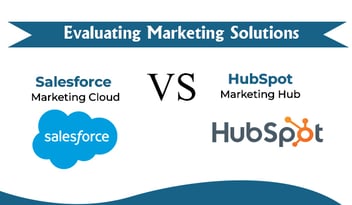The rise of the digital age has paved the way for Customer Relationship Management (CRM) systems to become a central part of modern businesses. The promises are numerous: enhanced customer interactions, streamlined operations, data-driven decisions, and ultimately, a strong return on investment (ROI). But the question remains - are all businesses truly reaping the rewards they anticipated from their CRM investments?
The Expected ROI from CRM Systems
A well-implemented CRM system can provide substantial ROI in several ways:
1. Increased Sales: CRM systems provide tools that help automate and manage the sales process, from lead capture to conversion. This can lead to shorter sales cycles, higher conversion rates, and ultimately, increased revenue.
2. Improved Customer Satisfaction: By offering a 360-degree view of each customer, CRM systems allow businesses to personalize interactions, respond promptly to queries, and anticipate customer needs, all of which can drive customer satisfaction and loyalty.
3. Operational Efficiency: Through automation of routine tasks, CRM systems can free up staff time, allowing them to focus on higher-value activities.
4. Data-driven Decision Making: By consolidating customer data in one place, CRM systems provide businesses with valuable insights that can inform strategic decision-making.
However, not all businesses are achieving these returns. Why might that be?
Why Some Businesses Don't Achieve the Expected ROI
Several common pitfalls may prevent businesses from realizing the full potential of their CRM investment:
1. Poor User Adoption: CRM systems only deliver value if they're used consistently. If a system is too complex or doesn't align with users' workflows, adoption rates may be low, undermining ROI.
2. Lack of Integration: A CRM system that isn't properly integrated with other key business systems can lead to data silos, inefficiencies, and a less-than-complete view of customers.
3. Inadequate Training: Even the best CRM system can fall short if users don't understand how to use it effectively. Investing in thorough, ongoing training is essential.
4. Absence of a Clear Strategy: Implementing a CRM system without a clear, strategic plan can result in a system that doesn't align with business goals, diminishing the return on investment.
Conclusion
The ROI potential of CRM systems is significant, but realizing this potential requires more than just implementing the system - it requires a strategic approach, focused on integration, user adoption, training, and alignment with business objectives.
At CETDIGIT, as a trusted Salesforce partner, we understand these challenges and can help businesses navigate the CRM journey, ensuring you avoid these pitfalls and realize the full potential of your CRM investment. From initial planning and system selection to integration, training, and ongoing support, we're here to help you every step of the way. With CETDIGIT by your side, you can transform your CRM system from a cost center into a powerful driver of business success.
Uncovering the Potential ROI of CRM: Why Some Businesses Fall Short
.jpg)
Popular Post
- Nostalgia Marketing’s Power with Millennials & Gen Z
- Sales and Sales Development in 2024: Why AI is a Must-Have for Growth
- SaaS Founder's Bible: The Rise, Fall, and Future of SaaS (2020-2025)- Part 1: Navigating Market Shifts
- What is Salesforce CRM?
- CETDIGIT's Innovative Approach to Salesforce & HubSpot CRM Implementation
Subscribe
Similar Blogs

Salesforce Marketing Cloud vs. HubSpot Marketing Hub
Marketing automation platforms are the backbone of modern marketing operations, streamlining...
READ MORE.jpg?width=352&name=Salesforce-01%20(7).jpg)
The Synergy of Cloud Services: Harnessing Salesforce's Commerce Cloud
In the digital age, eCommerce is no longer a luxury but a necessity for businesses aiming to scale....
READ MORE
Picking Your Power Player: Salesforce Marketing Cloud vs. Pardot
As businesses seek to amplify their marketing efforts, automation platforms like Salesforce...
READ MORE
Leave a Comment